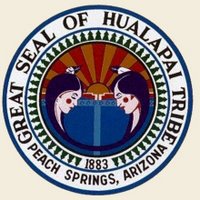Precedential No. 35: Despite Amendment of Application, TTAB Sustains Fraud Claim in "GRAND CANYON WEST" Opposition
The Hualapai Tribe was knocked out in the second round in its attempt to register GRAND CANYON WEST for various sightseeing services. In the first round [TTABlogged here], the Board sustained in part the opposition of Grand Canyon West Ranch on the ground of nonuse of the subject mark for some of Applicant's services, and it granted Applicant's motion to deleted those "unused" services. Opposer then obtained leave to add a fraud claim, and the Board has now sustained the opposition on that ground. Grand Canyon West Ranch, LLC v. Hualapai Tribe, 88 USPQ2d 1501 (TTAB 2008) [precedential].

The first two-thirds of this decision deals with the Board's ruling that the mark GRAND CANYON WEST is merely descriptive and/or primarily geographically descriptive of the Tribe's services. However, although it deemed GRAND CANYON WEST to be "highly descriptive" of Applicant's services, the Board found acquired distinctiveness based upon Applicant's use of the mark for nearly twenty years, its extensive advertising and promotion, the "increasing and now substantial levels of sales," and the level of media coverage. The Board therefore dismissed this claim.
As to the fraud claim, Applicant had identified its services as including transportation by "rail, tram" and "non-motorized vehicles featuring bicycles, and domestic animals." After the opposition was filed, the Tribe moved to amend its application to delete those services. Twenty days later, Opposer moved for summary judgment on the ground that Applicant had not used the mark on all the recited services. Opposer had not pleaded fraud, and it affirmatively stated that it was not seeking summary judgment on the ground of fraud.
Only after the Board's first decision - i.e., after the application was amended - did Opposer move to add a fraud claim. Nonetheless, the Board found fraud, pointing out that Applicant had not sought to amend its application until after it was opposed:
"We also note that it was not until the application was challenged in this opposition proceeding that applicant sought to amend its application to delete those services. See University Games Corp. v. 20Q.net Inc., ___ USPQ2d ___, Oppositions Nos. 91168142 and 91170668 (TTAB, May 2, 2008)," [TTABlogged here].
The Tribe argued that the offending language was added by amendment during prosecution, when Applicant's attorney inadvertently agreed to the identification proposed in an Examiner's amendment. It also argued that the "examiner's amendment is unlike the verified statement of goods in an affidavit of continued use ... or a statement of use."
The Board was not sympathetic:
"The accuracy of the information applicant provided in agreeing to the examiner's amendment was no less critical to the application than the information applicant provided in the application as filed. The integrity of the registration system rests on the accuracy of the information provided in either form. Applicants must ensure that all information they provide is true and accurate whether or not it is verified."
The Board therefore sustained the fraud claim, but noted that its ruling does not affect any common law rights the Hualapai Tribe may have, nor does it prohibit the Tribe from filing a new application to register its mark for the pared-down list of services.
TTABlog comments: Judge Walsh wrote this decision. It is interesting to note that he cites the University Games decision for the proposition that fraud is not cured by an amendment filed after an application has been challenged, suggesting that an amendment made before challenge would cure the fraud problem. That proposition is not found in the majority opinion (Judges Quinn and Grendel) in University Games, but only in his own concurring/dissenting opinion! How is a non-majority opinion precedential? What exactly is the TTAB's law on this point? When, how, and why may a supposed "fraud" be cured?
Moreover, note that the Hualapai Tribe sought to amend its application before any claim of nonuse or fraud was made. It is true that the opposition had already been filed, but the ground for the opposition was descriptiveness. Suppose the Tribe had sought to amend its registration the day before the opposition was filed. Then would it not be fraud, as Judge Walsh posited? Would the Tribe have enjoyed a rebuttable presumption that it had not committed fraud, as the majority held in University Games?
Suppose the Tribe sought amendment before the opposition was filed, but after the potential opposer had obtained an extension of time to oppose? No fraud? Rebuttable presumption?
Not to be lost in the uproar is the Board's ruling that acceptance of an Examiner's amendment of the recitation of services constitutes fraud, even though the newly-accepted listing of services was not verified at the time. Contrast the stringent treatment of the Tribe's acceptance of the Examining Attorney's amendment - based on the TTAB's concern with the "integrity of the registration system" - with the Board's new willingness to afford applicants and registrants the benefit of the doubt when they seek to correct false, verified statements regarding use. One might ask, what is more damaging to the integrity of the registration system: a verification that is false? or a non-verified amendment that is incorrect?
TTABlog addendum: The Las Vegas Trademark Lawyer blog further reports here.
Text Copyright John L. Welch 2008.




0 Comments:
Post a Comment
<< Home